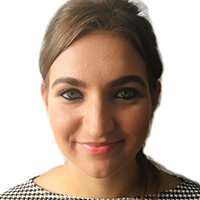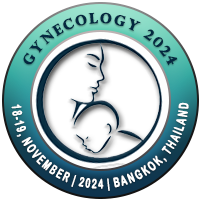
Natasha Citeroni
Formerly, GKT School of Medical Education, King’s College London, United KingdomTitle: Luteal phase pregnancy after Mirena Coil insertion for intrauterine septum resection
Abstract
Hysteroscopic
resection is a recognised management option for an anomalous uterine septum in
cases of recurrent miscarriage. This involves metroplasty of the septum to aid
the likelihood of successful implantation; via the reformation of an anatomically normal uterine cavity. Although
less established, uterine septum resection is also commonly performed where a
septum is present in instances of primary subfertility, where no other cause
can be identified. We report an unusual case of an intrauterine singleton
pregnancy with a Mirena Coil (IUS) in situ. This occurred following elective
hysteroscopic intrauterine septum resection for primary subfertility treatment in
a 27-year-old female patient. The patient decided to continue with the
pregnancy and underwent additional monitoring via ultrasonography. Planned
delivery occurred through caesarean section (c-section) at 39-weeks gestation
and a healthy male infant was born. Intraoperative recovery of the Mirena coil
occurred after visualisation in the placental membranes.
Due to the
rarity of pregnancy occurring with Mirena coil insertion as an adjunct to
hysteroscopic septum resection, this case presented a novel clinical scenario.
Following a review of the literature, no clear management guidelines were found
to be advised and previous recorded foetal outcomes in such cases were limited.
Furthermore, we discuss adjunctive treatments available for Congenital Uterine
Abnormalities (CUAs) and the current evidence base for intrauterine septum
excision. This case thus demonstrates a lack of high-quality large scale
evidence in the field whilst also proposing potential management options and
learning points for intrauterine septum excision in the context of primary
subfertility.
Biography
Natasha Citeroni is a current Academic Foundation
Doctor at University Hospital Southampton in the faculty of Human Development.
She graduated with distinction from GKT School of Medical
Education, King’s College London (KCL), England and has a particularly interest
in the field of women’s health. Previously, she was the Secretary for KCL’s OBG
Society and the KCL Ambassador for the British Undergraduate Society of
Obstetrics and Gynaecology (BUSOG).

